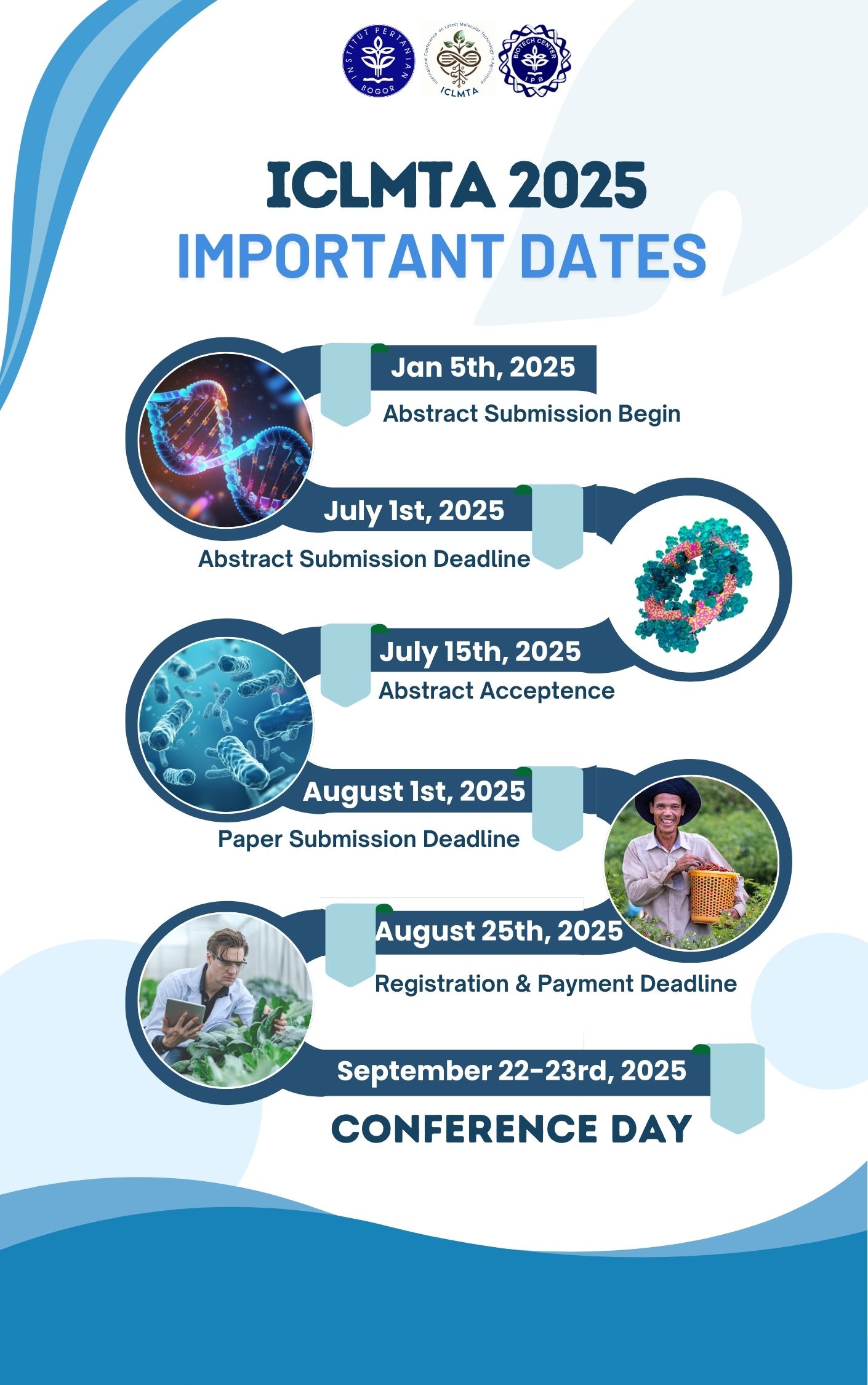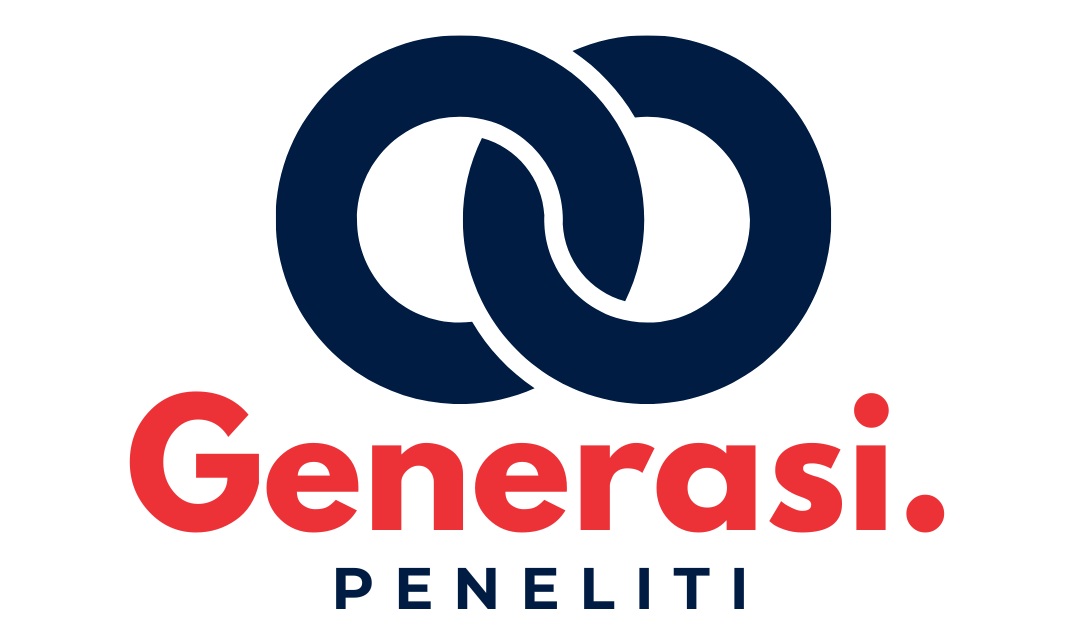


Media support:


| Registration |
| Payment Receipt Submission |
| Manuscript Submission |
| Abstract Template |
| Poster Template |
| Manuscript Template |
The International Conference on Latest Molecular Technology in Agriculture 2025 (ICLMTA 2025) is scheduled to take place on September 22-23, 2025, at the Holiday Inn Resort Baruna in Kuta, Bali, Indonesia. Organized by the Biotech Center at IPB University, this prestigious event serves as a global platform for researchers, academics, industry professionals, policymakers, and stakeholders to present and discuss the most recent advancements in molecular technologies applied to agriculture. ICLMTA 2025 aims to foster collaboration and knowledge exchange through keynote presentations, interactive workshops, panel discussions, and an exhibition showcasing cutting-edge innovations that are revolutionizing agricultural practices towards enhanced productivity and sustainability.
The conference is dedicated to exploring the integration of molecular technology in various aspects of agriculture, including genetic engineering, molecular breeding, biotechnology applications, and sustainable farming practices. By bringing together a diverse community of experts and enthusiasts in the vibrant setting of Bali, ICLMTA 2025 seeks to address global challenges such as food security, climate change, and resource management. Attendees will have the opportunity to engage in meaningful dialogues, establish valuable networks, and gain insights into the latest research and technological breakthroughs that are shaping the future of agriculture. Join us at ICLMTA 2025 to be part of a transformative experience that bridges scientific innovation with practical agricultural solutions for a sustainable and prosperous future.
ICLMTA 2025 carries the theme "Advancing Agriculture with Cutting-Edge Molecular Technologies". The scope of our International Conference represented our concern for advanced research on application of latest molecular technology on agriculture, forestry, veterinary, and animal sciences. Topics relevant to the Conference include, but are not limited to, the following:
1. Genomics and genetic engineering in crop improvement (i.e. genetic engineering, mini-chromosome for crop improvement)
2. Molecular markers and marker-assisted selection
3. Gene silencing, CRISPR and genome editing technologies
4. Biotechnology for pest and disease management(i.e. dsRNA, self DNA)
5. Molecular diversity and metagenomics
6. Sustainable agricultural practices through molecular innovations
7. Climate-smart agriculture and molecularapproachesSmall-scale farmer sovereignty on seeds and molecular technology innovations
8. Ethical considerations and regulatory frameworks in agricultural biotechnology
